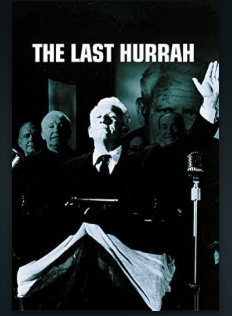A friend phoned me up about an organisation they wanted to donate to. They wanted to support bringing about policy change in an area the EU were active in.
Below is a summary of my advice.
How political decisions are made, and how to influence those decisions, varies between political capitals.
How Washington D.C. and Brussels works are very different.How things work in Paris and Brussels are different.
I’d not use the same gameplay in two national capitals.
If you have read Edwin O’Connor‘s, “The Last Hurrah”, you’ll get that all politics is local.

Many organisations, for-profit and not for profit, use one standard gameplay that ignores how decisions are made, or how to influence those decisions outside their home base. Many, again both for and not for profit seem to think that Brussels works more or less like their organisation or D.C. Many of those organisations are based in the USA. They seem surprised that their model of influence does not work in Brussels, or many places outside DC.
A lot of organisations continue to work to influence decisions in Brussels with all but a very loose understanding of how decisions are really made. I was surprised when someone told me that they were donating to a not for profit to support work on changing a policy. I knew the area but had never heard about the NGO. I checked with the official in the Commission who had the power of the pen on the file, and unsurprisingly they had never heard of the organisation.
6 Questions to see if they have the right deep understanding?
I advised my friend to ask these questions to see if the organisation they wanted to back had the right deep understanding (in the Cal Newport sense) of what needs to be done to win.
- Do they have relevant experience? Have they a track record of successfully influencing decision making in Brussels. Do they have a specific track record in the area you are dealing with?
- Do they really understand, not just textbook knowledge, about the legislative or policy process you are dealing with.
- Do they really understand the politics that is driving the issue and how to drive it in your favour?
- Do they know the key people who will really make the decisions and who hold the pen. Are they trusted by them?
- Do they have the skills and resources to deliver the policy change you want?
- A nice to have: Do they have suitable issue expertise. It is not a must. Many think that issue expertise alone is what you need to change policy/political decisions. The same people believe in Unicorns and Santa Claus.
Before you invest in an organisation or get your own organisation to become more active, you can check the answers to the questions. I’ve been tasked with doing that checking before. I spoke to the Cabinet lead about whether they’d ever come across the organisation and whether they had the influence on the file that was being claimed. The Cabinet member was helpful. They knew the organisation, and they had never had any noticeable impact on the file. I checked this out with 3 more key decision-makers on the file. The same news – no influence. The news was not welcome by the person who asked me to check. It seemed they’d spent a lot of money on achieving very little.